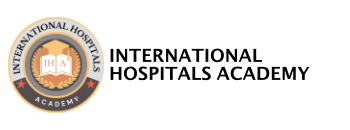Certificate In Public Health and Microbiology
Public health microbiology is a vital field that uses microbiological knowledge and techniques to prevent and control infectious diseases, focusing on public health surveillance, outbreak investigations, and the development of effective interventions.
Format
Online
Course
Starting date
Anytime
Author
IHA
Academy
Video
Unlimited
Duration
6 weeks
120 Hours
Price
$
99
About the course
Public health microbiology is a vital field that uses microbiological knowledge and techniques to prevent and control infectious diseases, focusing on public health surveillance, outbreak investigations, and the development of effective interventions.
Here's a more detailed explanation:
What it is:
Public health microbiology is a cross-cutting area that spans human, animal, food, water, and environmental microbiology, with a focus on human health and disease.
Why it's important:
Microbes cause a wide range of infectious diseases, and public health microbiology plays a crucial role in understanding, preventing, and controlling these diseases.
How it works:
Surveillance: Public health laboratories monitor the prevalence and trends of infectious diseases, providing timely information to inform public health actions.
Outbreak Investigation: When an outbreak occurs, microbiologists work to identify the cause, source, and mode of transmission, helping to contain the spread of the disease.
Intervention Evaluation: Public health microbiology helps evaluate the effectiveness of interventions, such as vaccination programs or sanitation measures.
Techniques: Public health microbiology utilizes a range of techniques, including microbial culture, molecular diagnostics, and mass spectrometry, to identify and characterize microorganisms.
Who's involved:
Microbiologists, often located in hospitals or public health surveillance laboratories, work closely with epidemiologists and clinicians to address public health issues.
Examples:
Foodborne illness: Public health microbiologists investigate outbreaks of food poisoning, identifying the contaminated food source and recommending interventions to prevent future outbreaks.
Waterborne diseases: They study water samples to detect pathogens and ensure the safety of drinking water.
Infectious disease surveillance: They monitor the incidence of infectious diseases like influenza, measles, and HIV, helping to track trends and identify high-risk populations
Here's a more detailed explanation:
What it is:
Public health microbiology is a cross-cutting area that spans human, animal, food, water, and environmental microbiology, with a focus on human health and disease.
Why it's important:
Microbes cause a wide range of infectious diseases, and public health microbiology plays a crucial role in understanding, preventing, and controlling these diseases.
How it works:
Surveillance: Public health laboratories monitor the prevalence and trends of infectious diseases, providing timely information to inform public health actions.
Outbreak Investigation: When an outbreak occurs, microbiologists work to identify the cause, source, and mode of transmission, helping to contain the spread of the disease.
Intervention Evaluation: Public health microbiology helps evaluate the effectiveness of interventions, such as vaccination programs or sanitation measures.
Techniques: Public health microbiology utilizes a range of techniques, including microbial culture, molecular diagnostics, and mass spectrometry, to identify and characterize microorganisms.
Who's involved:
Microbiologists, often located in hospitals or public health surveillance laboratories, work closely with epidemiologists and clinicians to address public health issues.
Examples:
Foodborne illness: Public health microbiologists investigate outbreaks of food poisoning, identifying the contaminated food source and recommending interventions to prevent future outbreaks.
Waterborne diseases: They study water samples to detect pathogens and ensure the safety of drinking water.
Infectious disease surveillance: They monitor the incidence of infectious diseases like influenza, measles, and HIV, helping to track trends and identify high-risk populations
Practical approach
Our training is designed to provide the skills in a practical approach. Our students' success is our best asset in showing the quality of our training.
Globally oriented
Strategies shared and knowledge earned allows our students to immediately set up their business and start offering their services around the globe.
For your career
Whether you want to boost your career within the company you are working or grow at your own business by applying the latest strategies we teach, this is the way.

